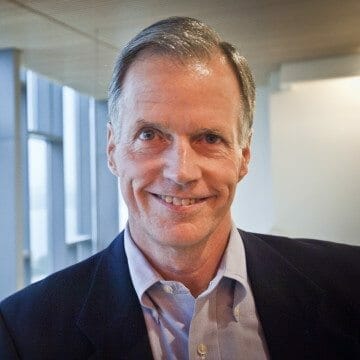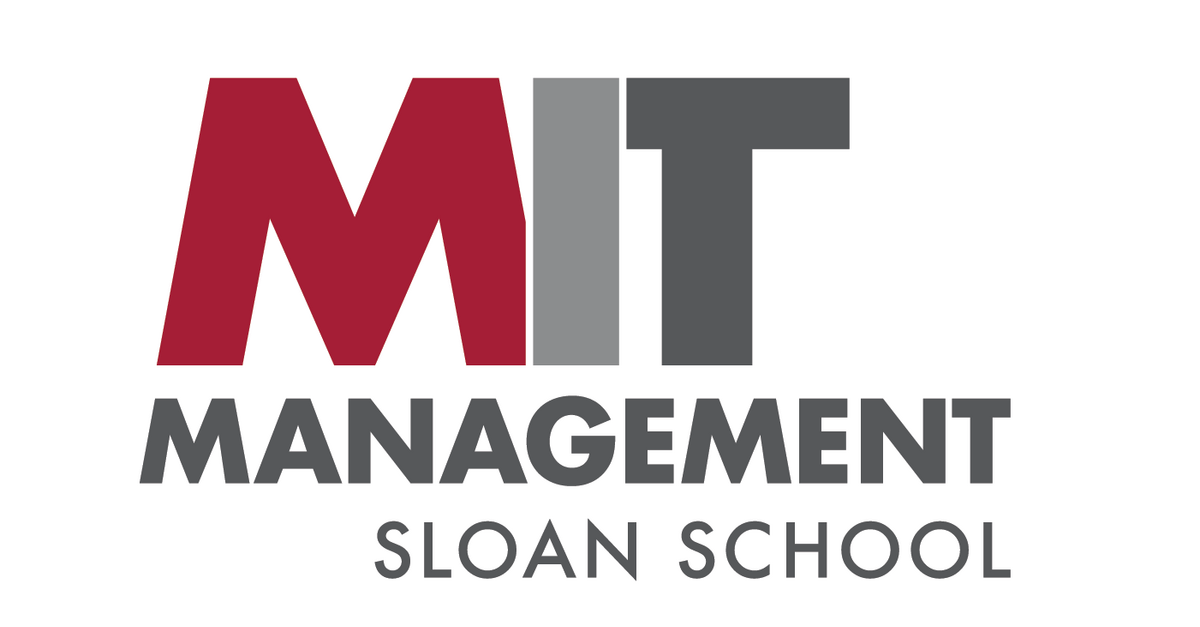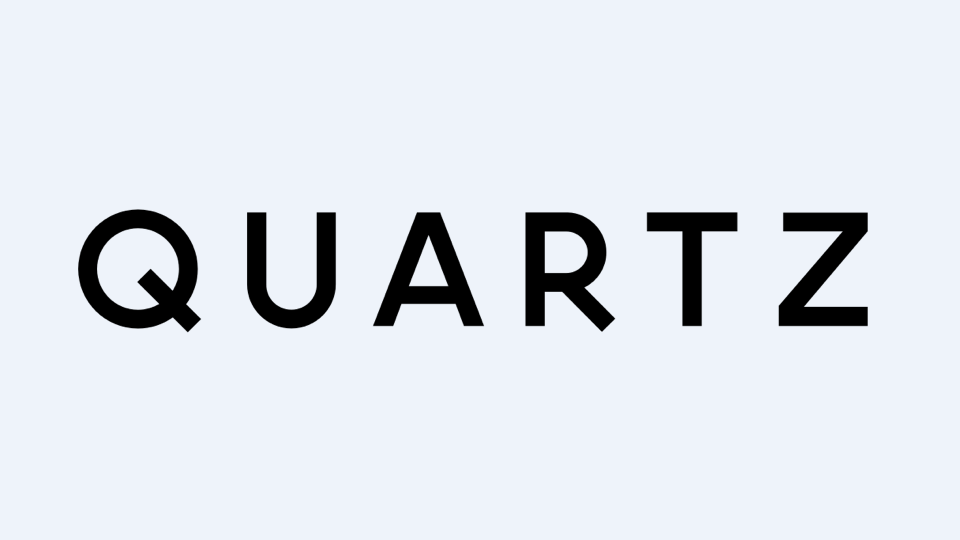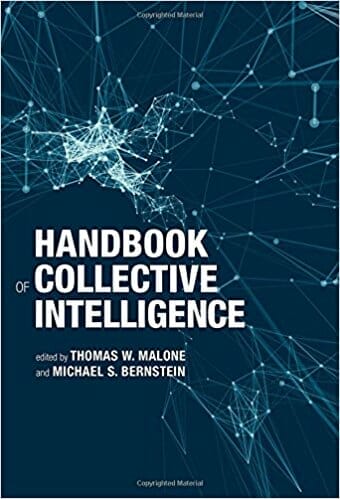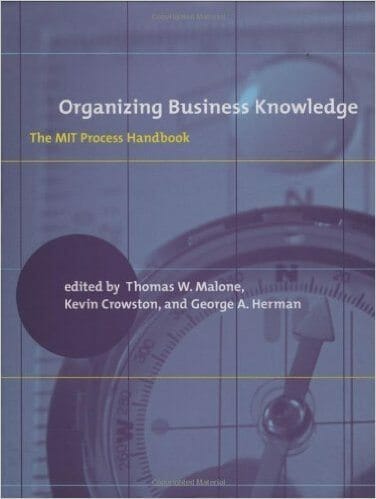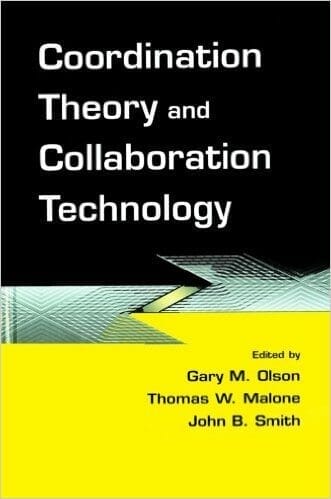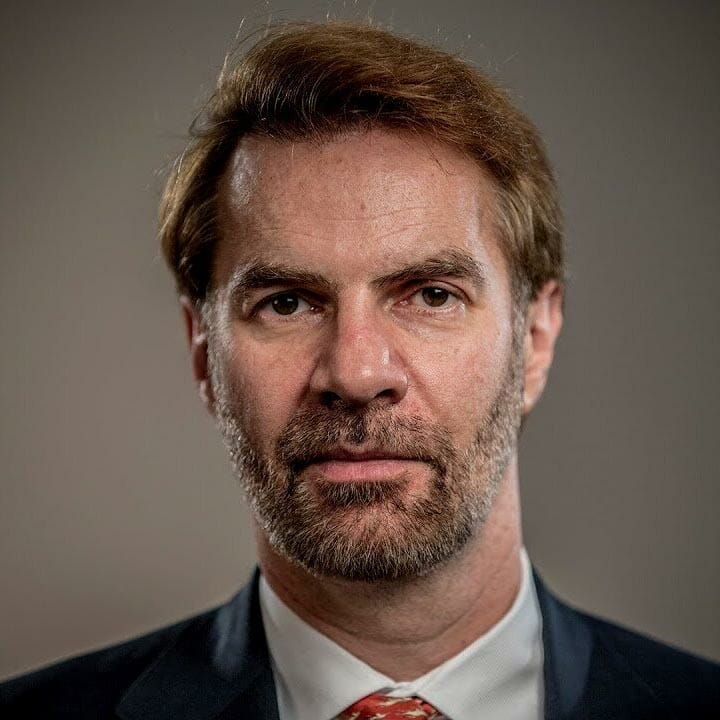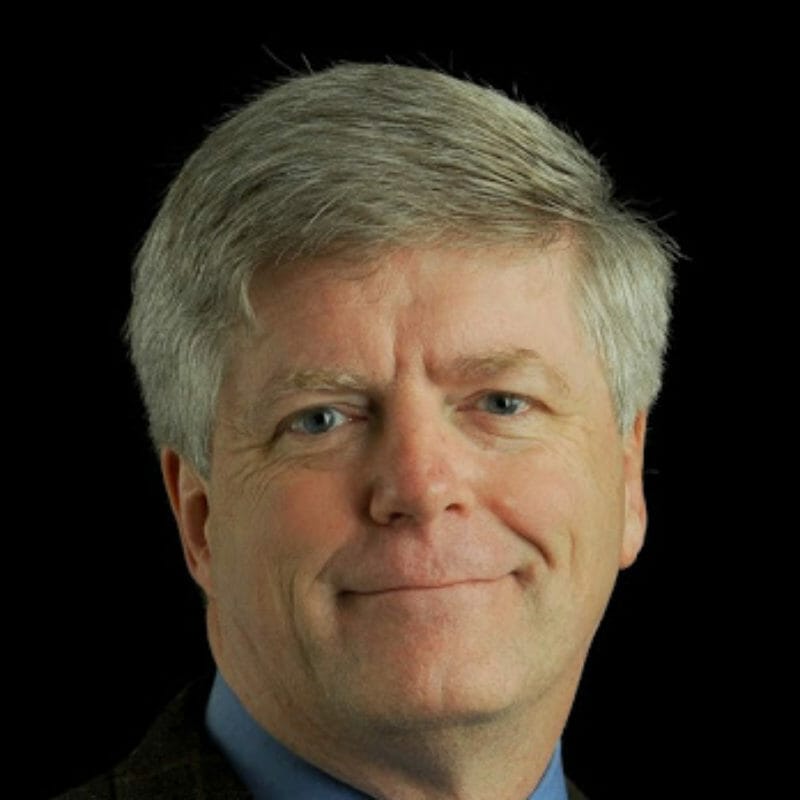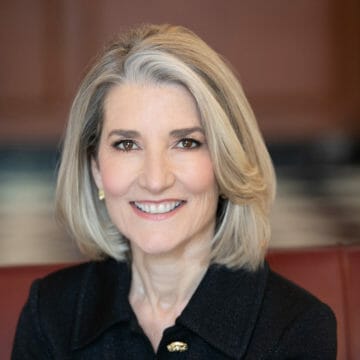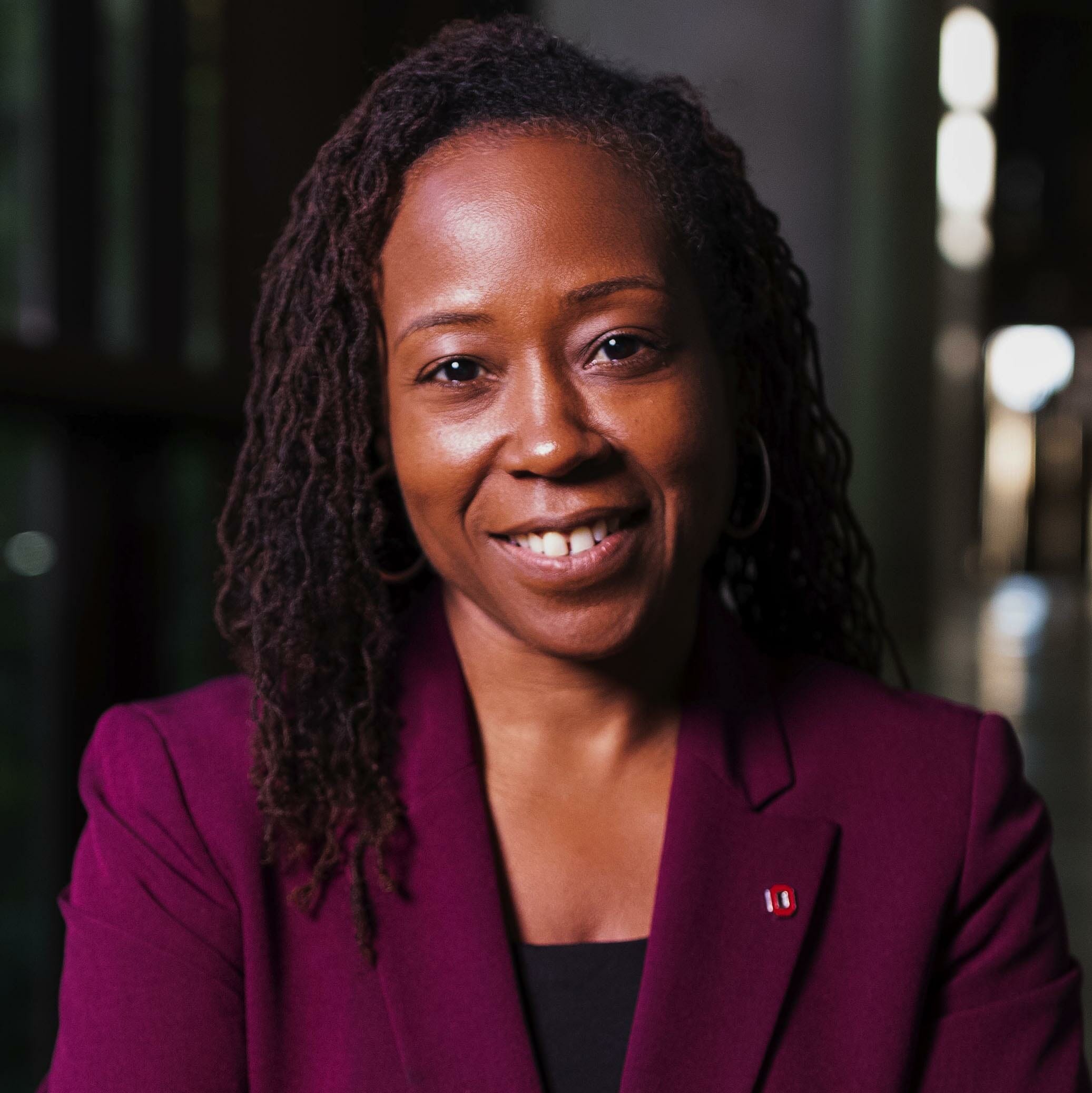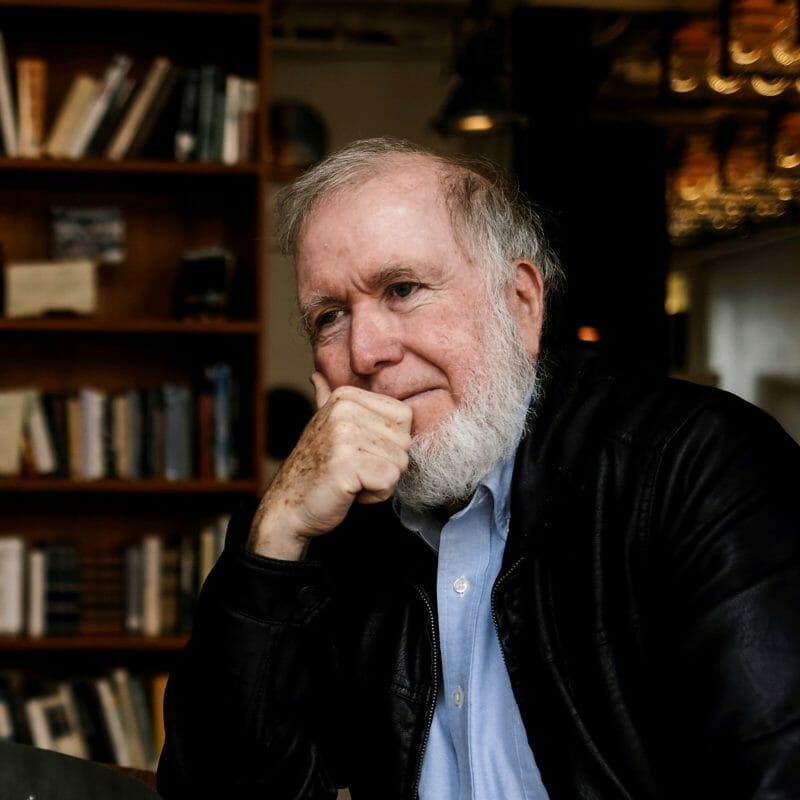Videos
Learn More About Thomas Malone
Add the word “supermind” to your lexicon. The concept of war between humanity and machines has a long history in the popular imagination, and more recently, it has migrated from the realm of science fiction to public debate about the near future. Some technologists argue AI is in danger of first taking our jobs, then developing its own humanoid consciousness and ultimately, destroying us. Thomas Malone, one of the world’s foremost experts on how humans and computers work together, argues that this narrative overlooks the huge opportunities for our mutually beneficial relationship with machines. Rather than displacing us, computers can make human groups smarter, not just with artificial intelligence, but perhaps even more importantly with hyperconnectivity: connecting humans to one another at massive scales and in rich new ways.
Using AI and hyperconnectivity to increase our intelligence is the latest example of an age-old concept Malone has uniquely chronicled: the combination of people (and sometimes machines) to create “superminds,” the driving force of progress throughout history. The supermind of the future will be a merger between humans and computers, and organizations of all kinds will need to develop strategies to seamlessly integrate human and technological capital.
Founding director of the MIT Center for Collective Intelligence and author of the recently published book “Superminds: The Surprising Power of People and Computers Thinking Together” (Little, Brown & Company, May 2018), Malone is an authority on designing organizational strategies to optimize the opportunities of human-computer partnerships. Also a professor of information technology and of work and organizational studies, he focuses on how computers can help organizations make better strategic decisions and manage their human resources and business processes more effectively. This research builds on Malone’s earlier work on organizational design and the future of work, notably “The Future of Work: How the New Order of Business Will Shape Your Organization, Your Management Style, and Your Life” (Harvard Business Review Press, 2004). Malone has advocated a “bottom-up” style of management, which has been used by companies such as Zappos, in keeping with his findings on the power of collective intelligence and decision-making. In recent years, Malone has extended this concept to the rise of AI and the opportunities to expand the scope and power of superminds beyond anything ever before seen.
Malone, a professor at MIT Sloan’s School of Management, is an eloquent and engaging speaker, and frequently presents to business audiences around the world. He has also been regularly quoted in various top-tier media outlets, including The New York Times, The Economist and WIRED. Formerly a research scientist at Xerox Palo Alto Research Center (PARC), Malone holds 11 patents, largely in user interface design and the representation of complex processes in software. He has co-founded four software companies, and has consulted and served as a board member for a number of other organizations. His background also includes a doctorate from Stanford University, an honorary doctorate from the University of Zurich, and degrees in applied mathematics, engineering and psychology.
Thomas Malone is available to advise your organization via virtual and in-person consulting meetings, interactive workshops and customized keynotes through the exclusive representation of Stern Speakers & Advisors, a division of Stern Strategy Group®.
Combining Human Intelligence with AI: Why the Future of Work is Not Humans versus Machines but Humans and Machines
Are humans being displaced by technology? Will machines and AI eventually rob us of our jobs? Not at all, says Thomas Malone. In fact, while some jobs will be eliminated, more will be created. Malone argues that the future is not a struggle between human and machine, but a world of opportunity for human/machine collaboration. The partnership of people and technology enables us to think in ways we’ve never thought possible, creating vast potential to organize work differently and build more intelligent organizations. In this presentation, Malone sheds light on the opportunities AI presents and discusses this “future of work.” New types of organizations will be ideally positioned to take advantage of emerging possibilities, and adapt rapidly to an increasingly complex and fast-changing world. Based on 30 years of groundbreaking research, he provides compelling models for designing the “company of the future.”
Superminds: The Surprising Power of People and Computers Thinking Together
Throughout human history, progress has almost never been made by individuals acting alone, but rather by the power of groups. Thomas Malone calls these groups “superminds” – entities like hierarchies, communities, markets, and democracies that can accomplish far more by drawing upon their collective abilities to create, learn, and make decisions together. In this talk based on his book, “Superminds,” Malone uses striking examples and case studies to show how computers can help create much more intelligent superminds, not just with artificial intelligence, but perhaps even more importantly with hyperconnectivity: connecting people to one another at massive scales and in rich, new ways. These new kinds of human-machine collective intelligence can help us address some of our most important problems in business, government, and other parts of society by, for example, creating jobs, enhancing innovation, and increasing the competitiveness of companies, regions and nations. Malone’s presentation is a practical guide to how groups that use computers to leverage their human intelligence can optimize their new power without losing sight of their human goals.
Smarter Isn’t Always Better: How to Build Better Teams
What if you could measure the intelligence of a group? And predict which teams will perform better than others? You can, says Thomas Malone – and doing so is critical for business success. Citing findings from years of comprehensive research, he discusses three significant factors that impact group effectiveness, including: social intelligence, the balance of contributions and proportion of women to men. Malone emphasizes that interpersonal skills are more valuable than we might think, and just because you have really smart people in a group doesn’t mean you have a really smart group. But most importantly, collective intelligence can be influenced and changed, and he offers prescriptive steps for doing so – ultimately, changing how leaders structure their enterprises to achieve their goals and create smarter organizations.
Solving Big Problems with Collective Intelligence
Since its launch in the early 1990s, the Internet has changed the way we communicate, share information and work. More recently, it’s dramatically changing how we think about and resolve collective issues. And according to Thomas Malone, the Internet – and our use of collective intelligence – will truly transform how we solve big, global problems. Drawing from his work with the Sloan Center for Collective Intelligence (CCI), Malone examines how collective intelligence and new technologies are impacting the way people work together – for the better. The Internet, he says, gives more people access to an increasing amount of information that allows them to make larger contributions to their work and the world. Malone discusses new crowdsourcing resources like InnoCentive and CCI’s own Climate CoLab, their benefits, and how they’re already helping foster solutions to complex challenges – from specific workplace issues to global problems like climate change. Collective intelligence, Malone believes, is set to become an increasingly essential factor in companies’ capacity to achieve long-term competitiveness.

Wall Street Journal logo What AI Will Do to Corporate Hierarchies
https://www.wsj.com/articles/what-ai-will-do-to-corporate-hierarchies-11554158120
Superminds: How Humans and Machines Can Work Together
January 28, 2019
How AI is Changing Knowledge Work: MIT’s Thomas Malone (Audio)
January 24, 2019
Expanded Opportunities in the New Workplace
July 25, 2018
Why Collaborative Thinking Beats Individual Smarts
June 18, 2018
Who Among Us Can Read a Sextant?
June 1, 2018
Why Some Teams Are Smarter Than Others
January 16, 2015
Empathy Can Thrive in an Online World
December 18, 2014
Government Aims to Build a ‘Data Eye in the Sky’
October 10, 2011
The Big Idea: The Age of Hyperspecialization
July - August, 2011
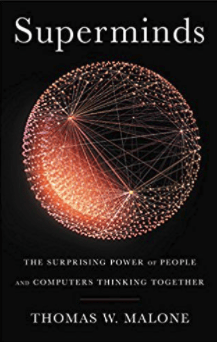
Superminds: The Surprising Power of People and Computers Thinking Together
(Little, Brown and Company, May 2018)
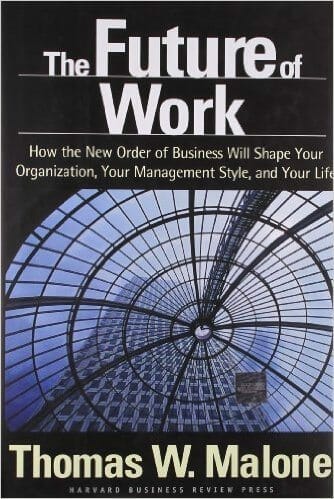
The Future of Work: How the New Order of Business Will Shape Your Organization, Your Management Style and Your Life
(Harvard Business Press, April 2004)
Praise for “Superminds”
“Every decade or two, I’ll read something, and I’ll say to myself, ‘I wish I wrote that!’ And then a few minutes later, rationality sets in, and I say to myself, ‘I wish I could have written that!’ This one of those kinds of books. I would say that if I had written this book, I wouldn’t have used that title. I think I would have called it, The Truth about Artificial Intelligence. … If you don’t know anything about artificial intelligence, read this book.” “Tom Malone puts worries about artificial intelligence in perspective, explaining why AI works best when combined with humans in superminds. What makes a supermind more or less intelligent is just one of many surprises in this fascinating book.”
“A book rich in speculation about how collective thinking might solve big problems such as climate change; of interests to fans of Daniel Dennett, Steven Pinker, and other big-picture thinkers.”
“Deeply explores the power of information technology to enable truly new forms of human organization. Highly recommended.”
“From the father of collective intelligence, a refreshingly realistic view of how computers will supercharge collective intelligence and how these superminds can help us tackle the most complex problems that face the world today.”
“In this fascinating book, Tom Malone introduces us to new vistas of human capability and creativity achievable through collective intelligence. By thinking imaginatively about our future, Malone helps us think differently about the present.”
“The wonderful essence of Tom Malone’s book is to imagine how people and computers will interact on a massive scale to create intelligent systems. And by imagining them in advance, we have some hope of nudging them in a positive direction.”
“In this terrific, well-researched, and highly readable book, Tom Malone explores provocatively and practically the opportunities and challenges that superminds will help us address in business and society. Leaders who care about harnessing the power of human minds in a world enabled by digital technologies must read this book.”
“Humans plus computers and networks have enormous potential. How can such wee creatures as ourselves take advantage of this potential? Malone addresses this question in a concrete way, laying the foundation for a new discipline: the systems engineering of superminds.”
“Malone takes us on an intentional journey into thinking about thought, intelligence, reasoning, and consciousness. He sees these notions in extremely broad terms that have changed my views of what it means to ‘think.'”
“A remarkable journey into the basic structures — markets, hierarchies, democracies and more — that have advanced civilization throughout history and now bring us to a turning point where the complex problems facing humanity can be addressed by people and computers working together in totally new ways. A must read.”
“We at IBM value the perspectives you brought to our session and appreciate the time you spent with us.”
